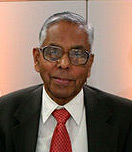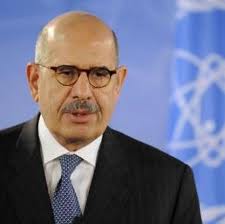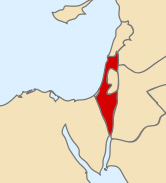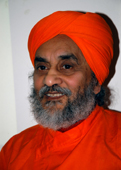
Ac.Krtashivananda Avadhuta
India on Friday (27th Nov. 2011) supported the International Atomic Energy Agency (IAEA), the UN nuclear watchdog’s governing body’s resolution that prevents Iran from developing a uranium-enrichment facility in secrecy.
The resolution, passed by a 25-3 vote with six abstentions, urges Iran to halt construction of the Fordow uranium-enrichment plant, located in a mountain bunker near the city of Qom immediately.
IAEA has also asked Tehran to immediately freeze the uranium-enrichment project. Besides, the resolution asks Tehran to clarify the original purpose of the Fordow facility and to confirm that Iran does not have any more hidden atomic facilities or clandestine plants for any purpose.
 Significantly, the latest IAEA resolution has also been supported by Russia and China, which have shied away from censuring Iran in the past.
Significantly, the latest IAEA resolution has also been supported by Russia and China, which have shied away from censuring Iran in the past.
Russia and China both hold the power to veto possible international sanctions as permanent members of the United Nations Security Council.
The West raised an alarm that Iran is secretly trying to build nuclear weapons in violation of its obligations under the nuclear Non-Proliferation Treaty, though Iran itself has declared it in a letter to IAEA on 21st Nov.
Meanwhile, the six countries that abstained from today’s vote were Afghanistan, Brazil, Egypt, Pakistan, South Africa, and Turkey.
Those who voted against the censure measure – Venezuela, Malaysia, and Cuba – are all developing countries in a bloc with Iran. They called the resolution provocative and counterproductive. Iranian officials say the IAEA resolution will undermine its relations with the UN nuclear watchdog.
The Indian vote, much like the Chinese sponsorship, came as a result of a lot of US diplomacy. The issue was discussed during the meetings in Washington earlier this week between the Obama administration and Indian officials, with even the US national security advisor holding a special conversation with NSA M K Narayanan. It is clear that India surrendered its neutral foreign policy to please America. But what is the reality?
When Iran’s Fordow fuel enrichment plant first became public on September 25 at the G-20 meeting in Pittsburgh, the underground facility, located near the holy city of Qom, was widely portrayed as proof that Tehran was pursuing nuclear weapons. In particular, U.S. President Barack Obama, French President Nicolas Sarkozy, and British Prime Minister Gordon Brown claimed that the clandestine enrichment plant’s “size and configuration” were “inconsistent with that of a peaceful program.”
For its part, Tehran has steadfastly denied that it’s pursuing nuclear weapons and rejects accusations that it hid the Fordow enrichment plant from the international community. Iran has defended its lack of disclosure and the nature and location of the facility (in a bomb-proof tunnel, under a mountain, near a military base) by citing its legal right under the Nuclear Non-Proliferation Treaty to enrich uranium, persistent Israeli military threats, and a different interpretation of its obligations to reveal new facilities to the International Atomic Energy Agency (IAEA) under the Subsidiary Arrangements to its Safeguards Agreement.
Mohamed ElBaradei, Chief of IAEA confirmed to reporters on Wednesday(25th Nov.) that U.N. inspectors had no proof of more covert nuclear sites in Iran but a newly revealed enrichment site made little sense for civilian or military ends. But Tehran’s behavior had increased the mistrust on the regime.
He said recourse to harsher sanctions against Iran, hinted at last week by Western powers angered by the fuel deal holdup, was likely to be counterproductive. U.N. resolutions against Iran were largely “expressions of frustration”, he added.
“We have no indication that there are other undeclared facilities in Iran. I want to be very clear about that,” he said, despite a November 16 IAEA report saying Fordow “reduced the level of confidence” in the absence of other clandestine plants. Nor did the IAEA have information of covert nuclear plans.
ElBaradei also denied reports, based on leaks of classified IAEA analyses, saying the agency had concluded Iran had developed technology needed to assemble a nuclear warhead.
 Institute for Science and Internal Security (ISIS) also confirmed that “There is no nuclear material at the facility and there are no centrifuges at the facility. The site is an advanced state of construction in preparation for centrifuges but there are no centrifuges.”
Institute for Science and Internal Security (ISIS) also confirmed that “There is no nuclear material at the facility and there are no centrifuges at the facility. The site is an advanced state of construction in preparation for centrifuges but there are no centrifuges.”
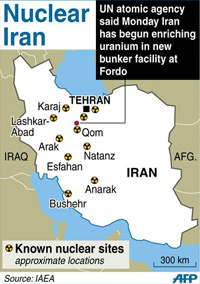 In its initial statement to the IAEA, Iran described Fordow as a pilot plant protected by “passive defense” systems. Tehran has justified placing the facility in a hardened mountainside tunnel as a response to barely veiled threats by the United States and overt threats by Israel to destroy its nuclear program. In another letter, cited in the agency’s report, Iran described the facility as a so-called contingency enrichment plant, designed to prevent enrichment from being suspended in the event its declared nuclear facilities were destroyed by military attack.
In its initial statement to the IAEA, Iran described Fordow as a pilot plant protected by “passive defense” systems. Tehran has justified placing the facility in a hardened mountainside tunnel as a response to barely veiled threats by the United States and overt threats by Israel to destroy its nuclear program. In another letter, cited in the agency’s report, Iran described the facility as a so-called contingency enrichment plant, designed to prevent enrichment from being suspended in the event its declared nuclear facilities were destroyed by military attack.
Since it would be difficult to divert enriched material from Natanz, theoretically Fordow still could be used to enrich natural uranium to HEU levels. But it would take four years to enrich enough natural uranium for just one bomb, hardly a viable breakout option. To remain undetected, this would require a covert uranium hexafluoride conversion plant, which converts uranium to gas for use in the cascades. So far, no clandestine Iranian conversion facility has been detected. (Iran’s only known conversion plant is at Isfahan, and it is under safeguards).
What is the stand of American lobby about Israel in a similar stance?
The IAEA, which met in Vienna on September 18, adopted a resolution expressing concern about “Israeli nuclear capabilities” and called on agency chief Mohamed ElBaradei to work on the issue. The motion was adopted by 49 votes to 45, with 16 abstentions. Russia and China, both permanent members of the UN security council, voted in favour. The United States and the European Union initially tried to block the vote, and then voted against it. David Danieli, deputy director of Israel’s atomic energy commission, said “Israel will not co-operate in any matter with this resolution. (aljazira.net)
Despite this defiance, despite Israel’s appalling record of violating international law, despite its record of waging and threatening war in the region, and despite possessing as many as 400 nuclear warheads, no Western Powers and journalists, suggested that Israel should be bombed or blockaded as a result. Indeed, apart from the tiny left-wing Morning Star newspaper and a couple of wire agencies, no main stream media carried the news. Neither any main stream media in Indian highlighted the resolution.
Israel is one of three countries, along with India and Pakistan, which is not a signatory to the NPT. The treaty is intended to prevent the spread of nuclear weapons, but Article VI constitutes a specific obligation on nuclear-weapon states like Britain and the United States to disarm themselves of nuclear weapons, an obligation they have conspicuously failed to meet.
But immediate propaganda of war against Iran started in a similar style, they adopted against Iraq and caused its devastation.
On the Guardian’s letter’s page, John Heawood delivered a powerful counterblast to the Guardian’s earlier warmongering:
“This ‘propaganda victory’ is easily demolished by relevant facts which you fail to mention. Fact: Israel has not signed the nuclear non-proliferation treaty. Fact: Israel has had nuclear weapons for at least 30 years. Fact: Israel has done and still does its best to conceal the existence of these weapons. Fact: as recently as 18 September Israel refused a request from the IAEA to open its nuclear plants to inspection. Fact: an unprovoked Israeli attack on Iran would be a violation of the UN charter and a war crime. And please don’t claim that Iran’s as-yet ambiguous nuclear activities are a provocation. What Israel most fears from Iran is not a nuclear threat to its territory, but a nuclear threat to its own nuclear domination.
The lunacy of the current propaganda campaign against Iran is bad enough. The fact that it comes so soon after the lies on Iraq – every last one of them now exposed for all to see – makes it far worse. But it is taken to an altogether different level by the fact that the last set of concocted threats has resulted in the devastation of an entire country, with over one million killed and four million made refugees (they are still out there, although not for the mainstream media). The icing on this malevolent cake is that there is next to no reference to these horrors in the latest media propaganda campaign. There is no sense that journalists recognise the consequences of what they helped make happen in Iraq. There is no sense that they feel even a tiny tug of horror at the prospect of repeating the same catastrophe in Iran.
Noam Chomsky commented on this: “it is not that they want to cause harm; they simply step on Third World people the way they might step on ants. It is perhaps best described as a kind of speciesism, rather than racism.
N:B: Author is the Director of Prout Research Institute, Germany.

